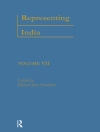This “excellent study of foreign policy-making” explores the changing nature of US-Korea relations since 1948 (David Hundt, Political Studies Review).
In
A Troubled Peace, Professor Chae-Jin Lee examines the evolution of U.S. policy toward South and North Korea beginning in the mid-twentieth century, when rival regimes were installed on the Korean peninsula. He presents an enlightening analysis of the goals the United States has sought for Korea, how these goals have been articulated, and the methods used to implement them.
Drawing on declassified diplomatic documents; primary materials in English, Korean, Japanese, and Chinese; and extensive interviews with American and Korean officials, Lee sheds light on critical factors that have affected U.S. policy: the functions of U.S. security policy in Korea, the role of the United States in South Korean democratization, President Clinton’s policy of constructive engagement toward North Korea, President Bush’s hegemonic policy toward North Korea, and the hexagonal linkages among the United States, China, Japan, Russia, and the two Koreas.
Discussing the concepts of containment, deterrence, engagement, preemption, and appeasement, Lee’s balanced approach reveals the frustrations of all players in their attempts to arrive at a modicum of coexistence. His objective, comprehensive, and definitive study reveals a dynamic—and incredibly complex—series of relationships underpinning a troubled and tenuous peace.












